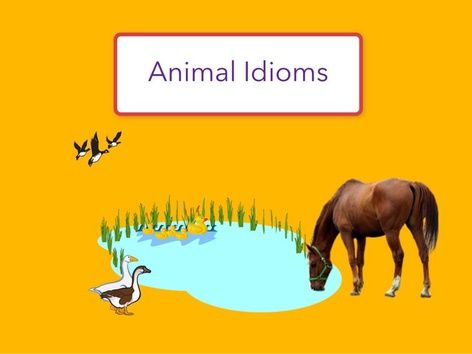Learning English Vocabulary Fast and Effectively
Jun 29
/
Theia Learn
Advance your English vocabulary with animal related idioms! No doubt, knowing them improves your language skills, deepens your cultural understanding, helps you advance in your education and enhances your ability to communicate effectively in various contexts. In the vast jungle of language learning, mastering idioms can be likened to discovering hidden treasures. These colorful phrases not only improve your English skills but also deepen your understanding of the language and help you learn English fast and effectively. Let's dive in!
Expanding your vocabulary with animal-related idioms improves your language skills, deepens your cultural understanding, and enhances your ability to communicate effectively in various contexts.
Why expanding your vocabulary
One of the key language learning tips is to immerse yourself in the world of animal idioms through active engagement and practice. When you learn English by compiling a list of commonly used idioms featuring animals, such as "stubborn as a mule" or "busy as a bee", you incorporate these idioms into your daily conversations, writing exercises, and even social media interactions. By applying these phrases in real-life contexts, you reinforce your understanding and usage, paving the way for language advancement and learn English fast and effectively.
In our Introductory English Vocabulary Course, we not only will equip you with essential animal-related idioms but also will dive into the nuances of language. Our course can help you improve your English skills and achieve a lot of language learning milestones. One crucial aspect we focus on is navigating through collocations, rich idiomatic language and words easily confused.
In our Introductory English Vocabulary Course, we not only will equip you with essential animal-related idioms but also will dive into the nuances of language. Our course can help you improve your English skills and achieve a lot of language learning milestones. One crucial aspect we focus on is navigating through collocations, rich idiomatic language and words easily confused.
Lesson series
Animal-Related Idioms
Write your awesome label here.
There are a lot of animal - related idioms about people. Watch this instructional video from our free 1-week long Introductory Vocabulary Course at and advance in your education.
Improve your English language skills.
In the Master English Vocabulary Course, you will dive into even more fundamentals divided into comprehensive themes. Check it out if you’re looking to improve your English language skills and learn English fast and effectively.
Did you know the origin of these idioms?

Let the cat out of the bag
This idiom is originated from medieval markets where farmers would bring pigs to market in sacks. Dishonest sellers would sometimes replace the pig with a less valuable cat. If someone accidentally revealed the secret by letting the cat out of the bag, the deception was uncovered.
The early bird catches the worm
This idiom emphasizes the benefits of being proactive and starting tasks early. It originated in the 17th century and can be found in various forms in English literature since then.
As stubborn as a bull
The origin of the idiom can be traced back to ancient agricultural practices involving the use of bulls for plowing fields. In many agricultural societies, bulls were indispensable for tilling soil and pulling heavy loads. During the process of plowing, farmers often encountered difficulties when trying to direct the bulls along the desired path. Bulls, being strong-willed creatures, would sometimes resist the farmer's commands, refusing to change direction or yield to external influences.
This idiom is originated from medieval markets where farmers would bring pigs to market in sacks. Dishonest sellers would sometimes replace the pig with a less valuable cat. If someone accidentally revealed the secret by letting the cat out of the bag, the deception was uncovered.
The early bird catches the worm
This idiom emphasizes the benefits of being proactive and starting tasks early. It originated in the 17th century and can be found in various forms in English literature since then.
As stubborn as a bull
The origin of the idiom can be traced back to ancient agricultural practices involving the use of bulls for plowing fields. In many agricultural societies, bulls were indispensable for tilling soil and pulling heavy loads. During the process of plowing, farmers often encountered difficulties when trying to direct the bulls along the desired path. Bulls, being strong-willed creatures, would sometimes resist the farmer's commands, refusing to change direction or yield to external influences.
Why are animal-related idioms used in the English language
Animals often have distinct characteristics, behaviors, or qualities easily recognizable and relatable to human experiences. By incorporating animal names into idiomatic expressions, speakers can vividly convey certain traits, emotions, or actions associated with those animals.
As busy as a bee
This idiom describes someone who is extremely industrious, hardworking, or active. Bees are known for their constant activity in collecting nectar and pollen, making this expression a vivid metaphor for someone who is always busy and productive.
Sly as a fox
This idiom refers to someone who is cunning, clever, or deceitful. Foxes are often portrayed as intelligent and cunning animals in folklore and literature, so comparing someone to a fox implies that they are adept at using their wits to achieve their goals, sometimes through deceptive means.
Stubborn as a mule
This idiom describes someone who is extremely obstinate, inflexible, or resistant to change. Mules are known for their strong and stubborn nature, often refusing to move or change direction once they've made up their minds. This expression vividly captures the idea of someone who is unyielding and determined in their beliefs or actions.
As busy as a bee
This idiom describes someone who is extremely industrious, hardworking, or active. Bees are known for their constant activity in collecting nectar and pollen, making this expression a vivid metaphor for someone who is always busy and productive.
Sly as a fox
This idiom refers to someone who is cunning, clever, or deceitful. Foxes are often portrayed as intelligent and cunning animals in folklore and literature, so comparing someone to a fox implies that they are adept at using their wits to achieve their goals, sometimes through deceptive means.
Stubborn as a mule
This idiom describes someone who is extremely obstinate, inflexible, or resistant to change. Mules are known for their strong and stubborn nature, often refusing to move or change direction once they've made up their minds. This expression vividly captures the idea of someone who is unyielding and determined in their beliefs or actions.
Read the following dialogues with animal-related idioms
Dialogue 1
Person 1: You’ve got ants in your pants today.
Person 2: (pacing) I’m so nervous about this job interview- I can’t sit still!
Did you guess that if someone has ants in their pants, that means a person is restless and moving around a lot, usually because he or she is nervous or excited.
Dialogue 2
Person 1: I’m so angry, I’m going to call her right now and argue with her.
Person 2: Wait a minute. Don’t you think it might be better just to let sleeping dogs lie?
Was it easy to guess that to let sleeping dogs lie means to leave a situation alone, to not interfere so you don’t cause trouble.
Dialogue 3
Person 1: I’m just so stressed because we’re moving house and it’s all changing so quickly.
Person 2: And how’s your mum?
Person 1: That’s a whole other kettle of fish.
What about the third idiom? I hope you understand that if something is another kettle of fish, or a whole other kettle of fish, that means it is entirely different.
Idioms help us express ourselves better with some sense of humour and a colourful manner
Consider three more idioms:
1. to pig out - to eat too much
I really pigged out at the barbeque. I've never eaten so much.
2. to be a pussy cat - a person who is very gentle
Don't worry. He looks frightening, but really, he's a pussy cat.
3. to talk the hind legs off a donkey - this idiom is used to describe a person who talks too much
Her speech seemed to go on forever; she could talk the hind legs off a donkey.
1. to pig out - to eat too much
I really pigged out at the barbeque. I've never eaten so much.
2. to be a pussy cat - a person who is very gentle
Don't worry. He looks frightening, but really, he's a pussy cat.
3. to talk the hind legs off a donkey - this idiom is used to describe a person who talks too much
Her speech seemed to go on forever; she could talk the hind legs off a donkey.

Take this quiz to improve your language skills
1. "Kill two birds with one stone" means:
a) To harm innocent animals
b) To achieve two things with a single action
c) To save birds from danger
d) To hunt efficiently
2. If someone "let the cat out of the bag," it means:
a) They released a pet cat
b) They revealed a secret
c) They chased a cat away
d) They bought a new cat
3. "The elephant in the room" refers to:
a) A large animal roaming freely
b) An obvious issue or problem that everyone ignores
c) A room full of elephants
d) A room with elephant decorations
4. If someone is described as "as sly as a fox," they are:
a) Very clumsy
b) Extremely clever and cunning
c) Fast like a fox
d) Scared of foxes
5. What does it mean when someone says, "You can't teach an old dog new tricks"?
a) Older people are incapable of learning
b) Dogs only learn when they are young
c) It's difficult to change someone's habits or behavior
d) Old dogs are disobedient
6. "To hold your horses" means:
a) To ride horses carefully
b) To be patient and wait
c) To prevent horses from running away
d) To race with horses
7. If someone is "a fish out of water," they are:
a) A very skilled swimmer
b) Comfortable in any situation
c) Uncomfortable or out of place in a particular situation
d) A person who dislikes seafood
8. What does it mean if someone says, "curiosity killed the cat"?
a) Being curious is dangerous
b) Cats are naturally curious animals
c) Cats are easily frightened
d) Cats are prone to accidents
9. If you're "like a bull in a china shop," you are:
a) Very cautious and careful
b) Graceful and elegant
c) Clumsy and awkward
d) Excellent at handling fragile items
10. "To flog a dead horse" means:
a) To beat a horse that is already dead
b) To attempt to do something that's already been attempted and failed
c) To buy a dead horse
d) To sell a dead horse
Review your answers at the bottom of the blog post.
a) To harm innocent animals
b) To achieve two things with a single action
c) To save birds from danger
d) To hunt efficiently
2. If someone "let the cat out of the bag," it means:
a) They released a pet cat
b) They revealed a secret
c) They chased a cat away
d) They bought a new cat
3. "The elephant in the room" refers to:
a) A large animal roaming freely
b) An obvious issue or problem that everyone ignores
c) A room full of elephants
d) A room with elephant decorations
4. If someone is described as "as sly as a fox," they are:
a) Very clumsy
b) Extremely clever and cunning
c) Fast like a fox
d) Scared of foxes
5. What does it mean when someone says, "You can't teach an old dog new tricks"?
a) Older people are incapable of learning
b) Dogs only learn when they are young
c) It's difficult to change someone's habits or behavior
d) Old dogs are disobedient
6. "To hold your horses" means:
a) To ride horses carefully
b) To be patient and wait
c) To prevent horses from running away
d) To race with horses
7. If someone is "a fish out of water," they are:
a) A very skilled swimmer
b) Comfortable in any situation
c) Uncomfortable or out of place in a particular situation
d) A person who dislikes seafood
8. What does it mean if someone says, "curiosity killed the cat"?
a) Being curious is dangerous
b) Cats are naturally curious animals
c) Cats are easily frightened
d) Cats are prone to accidents
9. If you're "like a bull in a china shop," you are:
a) Very cautious and careful
b) Graceful and elegant
c) Clumsy and awkward
d) Excellent at handling fragile items
10. "To flog a dead horse" means:
a) To beat a horse that is already dead
b) To attempt to do something that's already been attempted and failed
c) To buy a dead horse
d) To sell a dead horse
Review your answers at the bottom of the blog post.
Wrap up
Today you have learned about the importance of expanding your vocabulary, particularly using idiomatic language. Here are the key learning points to learn English fast and effectively:
1. Enhanced Communication Skills: Using a wide range of animal-related ones, enhances your communication skills by allowing you to convey complex ideas or emotions more effectively. It also helps you better understand idiomatic expressions used by others in everyday conversation.
2. Social Connection: Using animal-related idioms, can help you connect with others who share a common language and cultural background. It can create a sense of friendship and mutual understanding in social interactions.
3. Richer Language Use: Animal-related idioms add color, vivid imagery, and depth to your language. They provide creative ways to express ideas, emotions, and experiences, making your communication more engaging and expressive.
4. The Power of Animal Idioms in Language Advancement: Mastering animal idioms enhances your communication skills by introducing your speech with creativity and eloquence. Incorporating these colorful phrases adds depth and flavor to your expressions, making your communication more engaging and memorable.
5. Language Learning Tips: Embracing animal idioms as part of your language learning journey is a transformative endeavor that yields manifold benefits. By immersing yourself in these vibrant expressions, language learning online resources, you unlock new dimensions of linguistic proficiency and cultural fluency. So, seize the opportunity to explore the rich tapestry of animal idioms, and let your language skills flourish and thrive!
1. Enhanced Communication Skills: Using a wide range of animal-related ones, enhances your communication skills by allowing you to convey complex ideas or emotions more effectively. It also helps you better understand idiomatic expressions used by others in everyday conversation.
2. Social Connection: Using animal-related idioms, can help you connect with others who share a common language and cultural background. It can create a sense of friendship and mutual understanding in social interactions.
3. Richer Language Use: Animal-related idioms add color, vivid imagery, and depth to your language. They provide creative ways to express ideas, emotions, and experiences, making your communication more engaging and expressive.
4. The Power of Animal Idioms in Language Advancement: Mastering animal idioms enhances your communication skills by introducing your speech with creativity and eloquence. Incorporating these colorful phrases adds depth and flavor to your expressions, making your communication more engaging and memorable.
5. Language Learning Tips: Embracing animal idioms as part of your language learning journey is a transformative endeavor that yields manifold benefits. By immersing yourself in these vibrant expressions, language learning online resources, you unlock new dimensions of linguistic proficiency and cultural fluency. So, seize the opportunity to explore the rich tapestry of animal idioms, and let your language skills flourish and thrive!
Review your answers
Answers:
1. b) To achieve two things with a single action
2. b) They revealed a secret
3. b) An obvious issue or problem that everyone ignores
4. b) Extremely clever and cunning
5. c) It's difficult to change someone's habits or behavior
6. b) To be patient and wait
7. c) Uncomfortable or out of place in a particular situation
8. a) Being curious is dangerous
9. c) Clumsy and awkward
10. b) To attempt to do something that's already been attempted and failed
1. b) To achieve two things with a single action
2. b) They revealed a secret
3. b) An obvious issue or problem that everyone ignores
4. b) Extremely clever and cunning
5. c) It's difficult to change someone's habits or behavior
6. b) To be patient and wait
7. c) Uncomfortable or out of place in a particular situation
8. a) Being curious is dangerous
9. c) Clumsy and awkward
10. b) To attempt to do something that's already been attempted and failed
Learning English online
Ready to take your vocabulary to the next level?
Dive into our Master the English Vocabulary Course or start with the fundamentals from the Free Introductory Vocabulary Course. You will find there multiple interactive contents including quizzes, vocabulary games, video lectures, language learning tips and printable materials. You will learn English fast and effectively. Enjoy! 🌟





